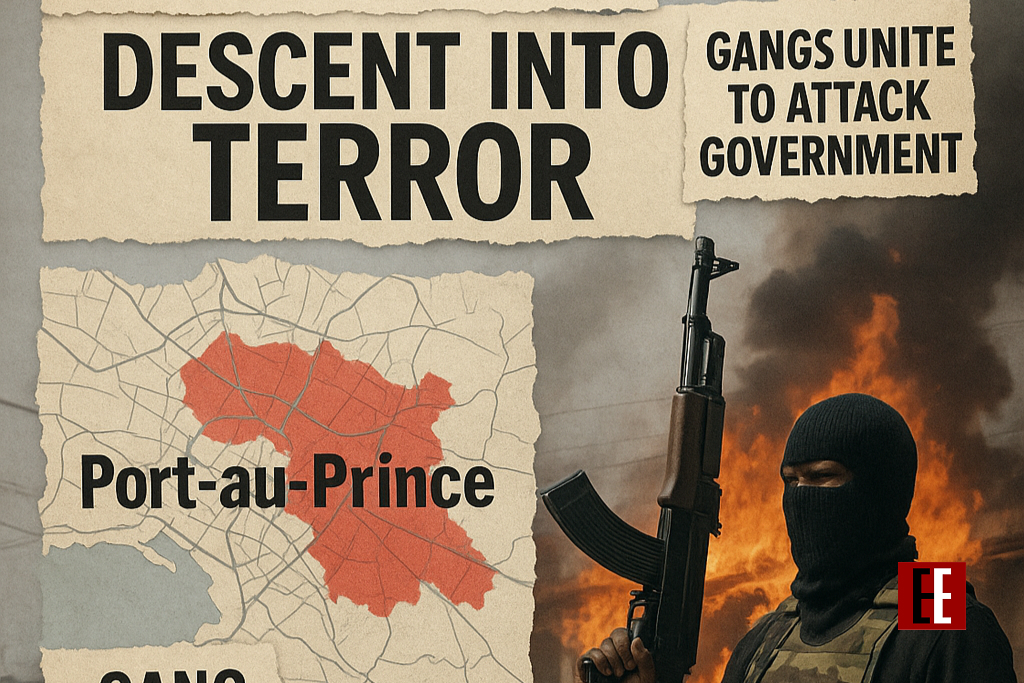Haiti is currently a collapsed state—with no working government, no security, and widespread human suffering. Armed gangs have stepped into the power vacuum, controlling territory, displacing civilians, and carrying out violence without resistance. Any long-term solution will require rebuilding governance, disarming the gangs, and international support.
How Small Rival Gangs United to Take Down the State
Haiti has long been plagued by multiple small gangs, often fighting over territory in Port-au-Prince. But in late 2023 and early 2024, something unusual happened:
Rival Gangs Formed a Super-Coalition
- Two major gang alliances, G9 Family and Allies (led by Jimmy “Barbecue” Chérizier) and G-Pep, were long-time enemies.
- But facing a common enemy — the Haitian government — they decided to join forces in early 2024 under a new alliance called “Viv Ansanm” (which means “Living Together”).
- This was unprecedented: gangs that had previously killed each other’s members suddenly cooperated.
What Did They Do Together?
Once united, they launched coordinated attacks on government targets:
- Stormed police stations and burned them down.
- Attacked the airport and shut down international flights.
- Freed over 4,700 inmates from Haiti’s two largest prisons in one night.
- Surrounded the capital and demanded the resignation of Prime Minister Ariel Henry.
Humanitarian Impact
The surge in violence has led to over 5,600 deaths and displaced more than one million people in the past year. Children are increasingly being recruited as child soldiers, with a reported 70% increase in such cases in 2024. The widespread insecurity has also disrupted access to food and healthcare, with more than half the population facing acute hunger.
Gang Dominance and Territorial Control
In the absence of a strong central government, gangs have expanded their control, now dominating approximately 85% of Port-au-Prince. Coalitions like Viv Ansanm, formed by rival gangs G9 and G-Pep, have orchestrated attacks on critical infrastructure, including police stations and hospitals, exacerbating the humanitarian crisis
International Response and Challenges
Efforts to stabilize Haiti have included the deployment of a U.N.-backed Multinational Security Support Mission, led by Kenyan police forces. However, this mission has been hampered by underfunding and insufficient manpower, limiting its effectiveness in curbing gang activities.
In a controversial move, Haitian authorities have begun using weaponized drones against gangs. While officials claim some success, these operations have resulted in civilian casualties and raised concerns about legality and humanitarian impact.
Outlook
Haiti’s situation remains dire, with gangs filling the void left by a weakened government. Restoring stability will require comprehensive international support, effective governance, and robust security measures to dismantle gang networks and rebuild state institutions.


